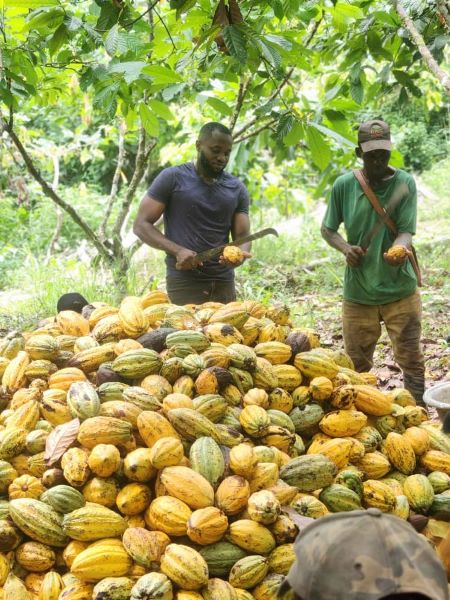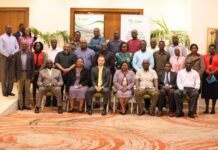
In the Global South, where agriculture forms the backbone of rural livelihoods, farmers face ongoing challenges, including limited access to modern agricultural technologies and climate change impacts. Cocoa farmers in Ghana, responsible for a significant share of the world’s cocoa production, are particularly vulnerable as unpredictable weather patterns, such as prolonged droughts, continue to threaten their livelihoods. However, recent advancements in innovative financing for solar irrigation offer a promising solution.
At the forefront of these developments is research led by the International Water Management Institute (IWMI) under the CGIAR’s Excellence in Agronomy Initiative (EiA). Their work provides a glimpse into how targeted financial models can bridge the gap between smallholder farmers and sustainable, productive agricultural technologies like solar irrigation. “In the face of climate change and limited access to modern agricultural technologies, cocoa farmers in Ghana are particularly vulnerable. The International Water Management Institute (IWMI) is bridging the gap between these smallholder farmers and sustainable solutions like solar irrigation through innovative financing models,” — Kekeli Gbodji, Research Officer – Inclusive Agricultural Finance, International Water Management Institute – West Africa
A Breakthrough in Financing: Paving the Way for Solar Irrigation in Cocoa Farming

Ghana’s cocoa sector has long struggled with water management. With rainfall becoming increasingly unreliable due to climate change, farmers are facing lower yields and deteriorating crop quality. Solar irrigation presents a viable solution, but its adoption has been slow due to high upfront costs and insufficient access to credit. Recognizing this barrier, IWMI, in collaboration with key stakeholders, developed an innovative financing model designed to ease the financial burden on cocoa farmers.
This new model, validated at a recent workshop involving banks, irrigation suppliers, and farmers, is centered around a first-of-its-kind co-created finance solution. Local banks, including Access Bank Plc, in partnership with organizations like the Mastercard Foundation, have committed to offering low-interest loans for solar-powered irrigation equipment. These loans come with extended repayment terms, a crucial consideration for farmers whose income fluctuates with agricultural cycles. The introduction of this financing option marks a turning point for Ghana’s cocoa sector, enabling farmers to invest in solar irrigation, improve their productivity, and withstand climate-related challenges.
“At Access Bank Plc, we deeply value the pivotal role cocoa farmers hold in Ghana’s economy and are mindful of the climate challenges that impact their work. In collaboration with the International Water Management Institute (IWMI) and with support from the MasterCard Foundation, we are committed to providing innovative, tailored financial solutions that meet these farmers’ needs. Through flexible, low-interest loans for solar irrigation equipment, we aim to boost productivity, strengthen resilience, and uplift livelihoods. This initiative underscores our dedication to sustainable progress and our commitment to empowering the communities we serve,” Pearl Nkrumah – Executive Director
Empowering Farmers through Inclusive Financing
The real genius of this model lies not only in the provision of loans but also in its flexibility and inclusivity. Farmers can now access loans with a flat interest rate of 7% and repayment terms of up to four years, including a six-month moratorium. This flexibility allows cocoa farmers to recover from potential crop failures before they begin loan repayments, offering a much-needed buffer against the inherent risks of farming.
A particularly innovative aspect is the promotion of group ownership models. By pooling resources, farmers can form small groups of three or larger collectives of five to share the costs of irrigation equipment. This approach not only reduces the financial burden on individual farmers but also fosters collaboration and knowledge sharing among farming communities. Additionally, it makes irrigation technology more accessible to smallholder farmers, particularly those who otherwise wouldn’t be able to afford the upfront costs.
Sustainability and Financial Innovation: A Pathway to Resilience
At its core, this financing model is about more than just loans—it is about resilience. Solar irrigation enables cocoa farmers to adapt to climate change while also boosting their yields, securing their income, and safeguarding the future of Ghana’s cocoa industry. This is a key part of the broader effort to achieve sustainable agricultural practices that not only benefit farmers but also align with environmental goals.
By offering longer-term loans tailored to the unique realities of agriculture, IWMI’s research has paved the way for sustainable farming practices that extend beyond cocoa. This model can serve as a blueprint for other sectors, demonstrating how innovative financial solutions can unlock new technologies and lead to widespread adoption of climate-smart agriculture across the Global South.
Looking Ahead: The Need for Stakeholder Action
As this initiative moves forward, it’s clear that a multi-stakeholder approach is essential to scaling such financing models. Financial institutions, government bodies, and the private sector each have a critical role to play. Banks and lending institutions must develop tailored products that meet the specific needs of farmers, offering longer-term loans with flexible repayment structures. Governments can provide supportive policies—such as tax incentives for farmers adopting solar technologies—and invest in the necessary infrastructure to make these innovations more accessible. Meanwhile, private sector players need to design and market irrigation technologies that cater to smallholder farmers, bundling technical support with financial products to ensure seamless adoption.
“By partnering with local banks and organizations, IWMI is enabling farmers to access affordable, low-interest loans that empower them to invest in technology crucial for enhancing productivity and resilience. This initiative not only secures the livelihoods of cocoa farmers but also sets a precedent for sustainable agricultural practices across the Global South,” concludes Gbodji.
In conclusion, innovative financing solutions like those pioneered by IWMI are critical to unlocking sustainable agricultural practices for smallholder farmers in the Global South. By addressing the barriers of cost and credit, these models offer a lifeline to farmers struggling to adapt to the harsh realities of climate change. For Ghana’s cocoa farmers, this is more than just access to irrigation—it is a step towards a more secure, productive, and resilient future. And it is a solution that, if replicated, can transform the agricultural landscape across the developing world.
Written by: Kekeli Kofi Gbodji, William Quarmine, Marie-Charlotte Buisson, Archisman Mitra, Petra Schmitter – IWMI Researchers, and Barbra Sehlule Muzata – Global Communications and Brand Leader








